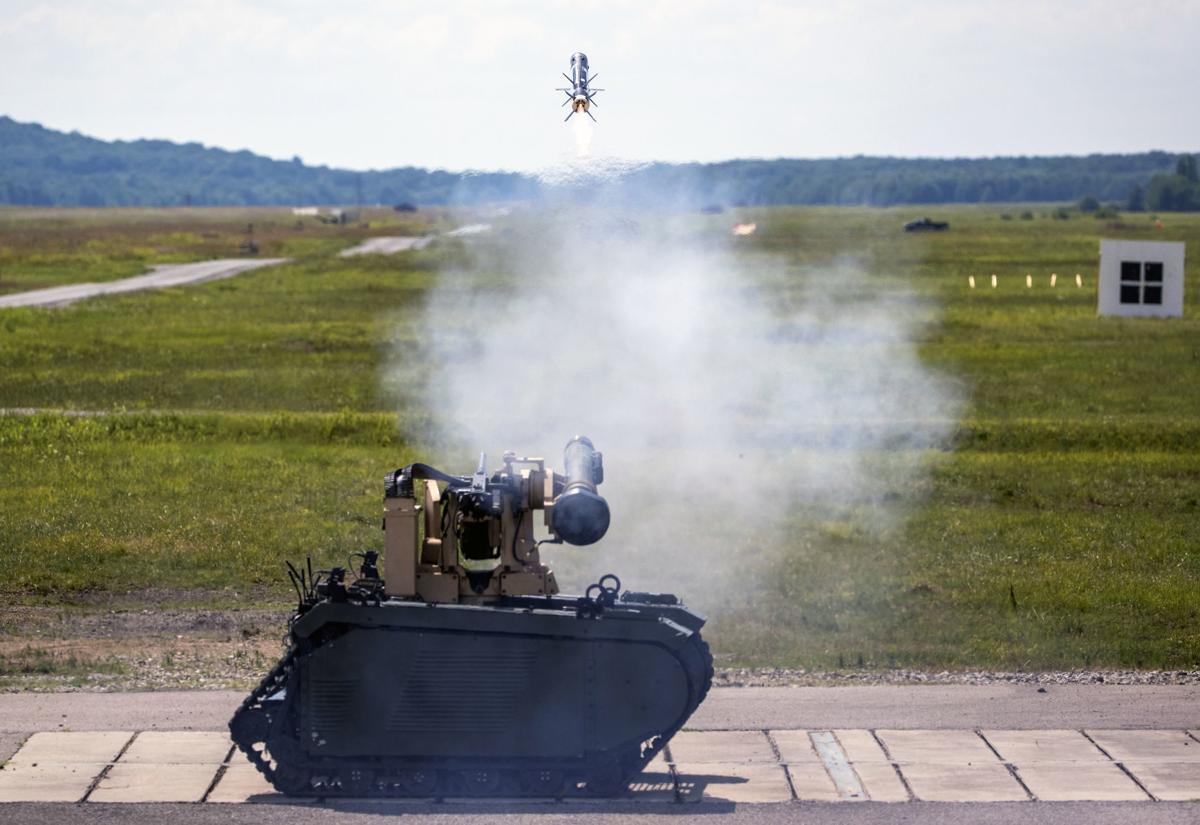As part of the latest push for robotic weapon systems, a joint venture led by Tucson-based Raytheon Missile Systems recently fired a combat-proven Javelin anti-tank missile from a robotic ground combat vehicle in a test for the Army.
The Raytheon-Lockheed Martin Javelin Joint Venture team remotely fired Javelins for the first time from an unmanned vehicle during a test conducted in June at the U.S. Army Redstone Test Center adjacent to Huntsville, Alabama, the companies announced last week.
The test had international participation, as the missiles were launched from a remote launcher made by Norway-based Kongsberg Defence Systems, mounted on a Titan unmanned ground vehicle built by the North American unit of United Kingdom-based QinetiQ and Milrem Robotics of Estonia.
The demonstrations “validated the integration of the weapon station, missile and vehicle,” Raytheon said.
While drone aircraft have in the past several years developed into important attack platforms for the U.S. and other major militaries, unmanned ground vehicles (UGVs) are still under development for combat use by nations including Russia and China.
So far, the U.S. military has used UGVs mainly for transporting gear, reconnaissance and bomb-disposal, such as the Foster-Miller Talon remotely-operated vehicles and PackBot military robots.
But some robotic ground vehicles have been developed with combat options, such as the Marine Corps’ Gladiator Tactical UGV, which can mount several different types of machine guns but has yet to be fielded.
The Javelin already has been fielded with a remotely operated firing system on manned U.S. Army Stryker 8x8 vehicle brigades in Europe, keeping soldiers inside and under armor while they launch the weapons.
“Javelin is ready to support emerging military robotic vehicle requirements,” said Sam Deneke, vice president of land warfare systems for Raytheon Missile Systems. “Remotely operated technology like this protects soldiers in battle.”
Originally fielded in 1996 and continuously upgraded over the years, the Javelin can be fired from man-portable launchers and can lock onto a target and guide itself without human help.
The missile system is fielded by more than 20 allied nations and has been used more than 5,000 times by U.S. and coalition forces in Afghanistan and Iraq.
David Pantano, Javelin Joint Venture vice president and Lockheed’s Javelin program director, said the missile system offers “true fire-and-forget” engagements at up to 4 kilometers, or about 2.5 miles, in most conditions.
“Once the launch command is issued, soldiers and vehicle assets like the UGV can reposition out of harm’s way,” he said.
The Javelin Joint Venture has produced more than 45,000 Javelin missiles and 12,000 command launch units, Raytheon said.
TenWest festival looms
Tickets are on sale for the TenWest Impact Festival, a 10-day series of events Oct. 11-20 across various Tucson locations that includes exhibitions, conferences and interactive experiences spanning technology, education, entrepreneurship and the arts.
A centerpiece of the entrepreneurship program is IdeaFunding (Oct. 17), which includes a business-pitch competition with a $25,000 grand prize.
A variety of ticket packages are available, including an all-inclusive passport for $300 and a general ticket for $35 that covers most events besides those with special add-on fees, such as the IdeaFunding pitch contest and luncheon and other luncheon events.
For more information or to register, go to tenwest.com.





